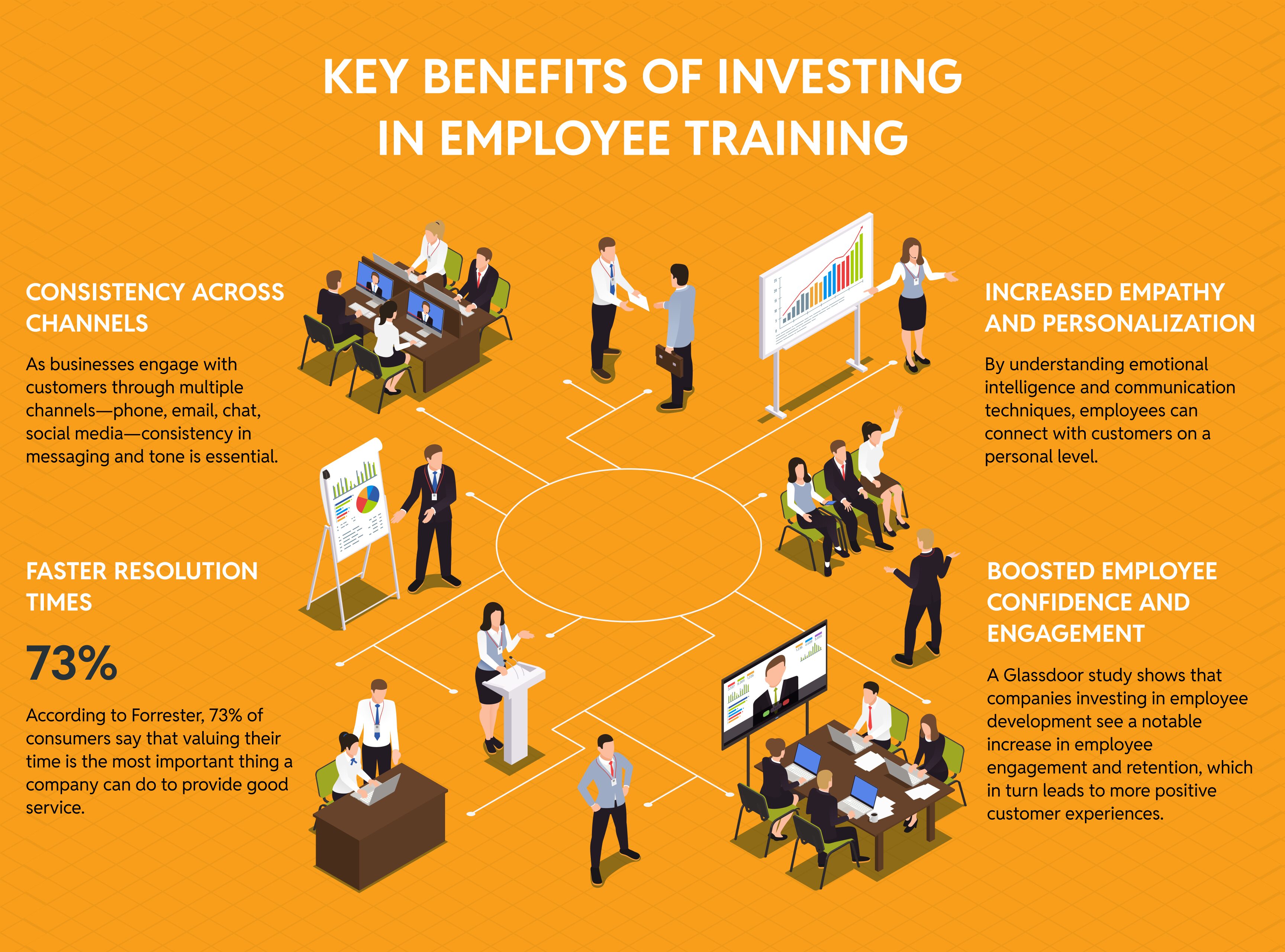Picture this: A customer reaches out late in the evening, frustrated because a product they purchased isn’t working as expected. On the other end of the line is an employee who not only understands the product’s technical details but also knows how to calm the situation, empathize with the customer’s frustration, and guide them toward a solution. This interaction doesn’t happen by accident—it’s the direct result of comprehensive, well-designed employee training. In an environment where customers expect personal attention, rapid resolutions, and genuine understanding, the depth of your staff’s skills can make all the difference. Effective training transforms your frontline teams into knowledgeable, confident representatives of your brand, setting the stage for exceptional customer experiences every time.
The Link Between Training and Customer Satisfaction
Employee training ensures that customer-facing staff have the knowledge, skills, and confidence to address customer needs promptly and effectively. According to a study by Deloitte, companies that invest in comprehensive training programs experience a 218% higher income per employee than those with less comprehensive training¹. This correlation highlights that training not only improves service quality but also contributes positively to the bottom line.
Moreover, research by Salesforce reveals that 80% of customers consider the experience a company provides as important as its products and services². When employees are well-trained, they can better understand customer needs, troubleshoot issues effectively, and provide memorable experiences that earn loyalty and repeat business.


Key Benefits of Investing in Employee Training

Consistency Across Channels
As businesses engage with customers through multiple channels—phone, email, chat, social media—consistency in messaging and tone is essential. Well-trained employees are equipped to maintain a consistent brand voice and level of professionalism, regardless of the interaction method.

Faster Resolution Times
Proper training helps employees anticipate common problems and respond with quick, effective solutions. According to Forrester, 73% of consumers say that valuing their time is the most important thing a company can do to provide good service³. Well-trained representatives can streamline resolution times, reducing customer effort and increasing satisfaction.

Increased Empathy and Personalization
By understanding emotional intelligence and communication techniques, employees can connect with customers on a personal level. Training in empathy and active listening ensures that employees handle sensitive issues delicately, turning potentially negative interactions into positive outcomes.

Boosted Employee Confidence and Engagement
When employees feel prepared and supported, their job satisfaction and confidence rise. A Glassdoor study shows that companies investing in employee development see a notable increase in employee engagement and retention, which in turn leads to more positive customer experiences.
How to Implement Effective Training Programs

Identify Skill Gaps
Start by assessing current employee competencies. Conducting performance reviews, customer surveys, and call analysis can help pinpoint areas where training will have the most impact.

Use a Blend of Training Methods
Combine in-person workshops, online courses, and role-playing exercises to cater to different learning styles. This blended approach makes training more engaging and effective.

Encourage Continuous Learning
Customer expectations evolve, and so should employee skill sets. Regularly update training materials to address new products, policies, and technologies, and encourage employees to pursue ongoing professional development.

Measure Results and Provide Feedback
Track key performance indicators like customer satisfaction scores, average resolution times, and employee confidence levels. Use these metrics to refine your training programs and celebrate improvement.
How XMC360 Empowers Businesses Through Training
At XMC360, we understand that exceptional customer service starts with exceptional employees. Our platform supports employee training and development in multiple ways:
-
Centralized Knowledge Base
XMC360 consolidates product information, FAQs, and troubleshooting guides in one place, making it easy for employees to find the answers they need quickly.
-
Real-Time Analytics and Feedback
Our analytics tools help identify common customer pain points and skill gaps. With this data, you can tailor training programs to address the most pressing issues.
-
Ongoing Training Modules
XMC360 integrates with leading learning management systems, allowing businesses to provide targeted training materials, track progress, and ensure continuous improvement.
-
Omnichannel Support
By unifying customer interactions across channels, XMC360 enables employees to practice handling diverse customer scenarios, strengthening their adaptability and efficiency.
With XMC360, businesses gain the insights, resources, and flexibility needed to build a well-trained, highly capable customer service team—one that can consistently deliver outstanding results.

Investing in employee training is not a mere cost—it’s a strategic decision that can transform customer service operations. Well-trained employees create positive customer experiences, drive brand loyalty, and contribute to sustainable business growth. As customer expectations continue to evolve, organizations that prioritize training and skill development will be better equipped to meet these demands head-on.
With XMC360 as a partner, businesses can equip their teams with the knowledge, tools, and confidence required to excel in customer service. By committing to training, companies set the stage for exceptional interactions that keep customers coming back for more.
References:
- Deloitte. (2014). Global Human Capital Trends: Engaging the 21st-century workforce.
- Salesforce. (2019). State of the Connected Customer.
- Forrester. (2017). Drive Revenue with Great Customer Experience.


